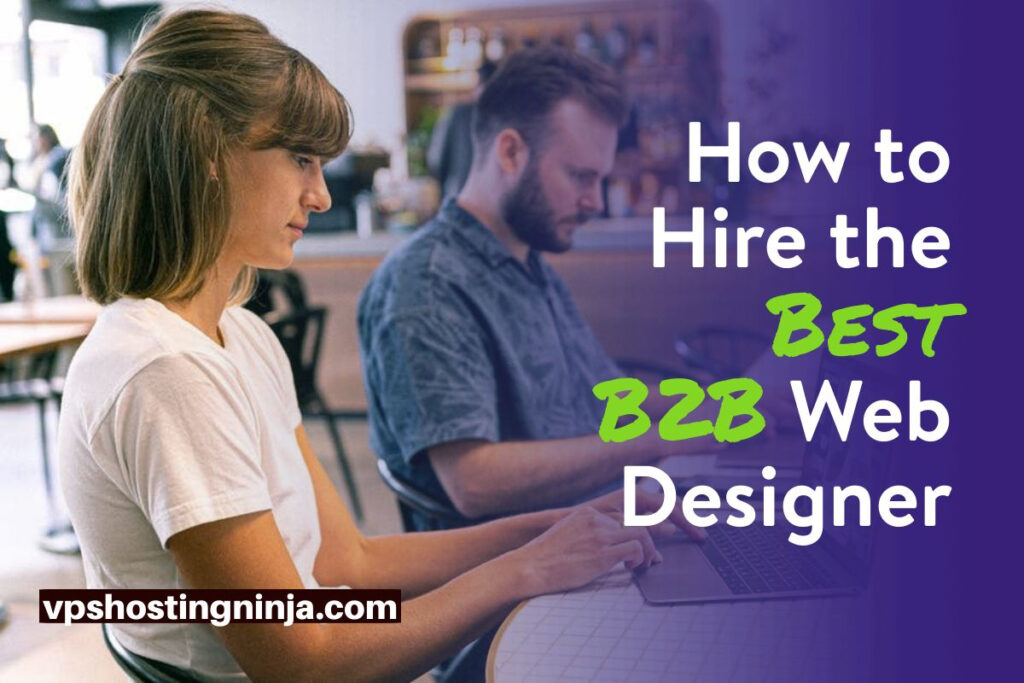How to Hire the Best B2B Web Designer within A Very Short Time?
As a b2b business owner, if you don’t already have a website, you’re missing a great opportunity.
Traditionally, b2b businesses have focused on offline marketing, face to face interactions and making their presence felt in trade fairs, conventions, exhibitions and events.
Decision makers exchanged visiting cards, set up meetings and developed personal relationships that drove business transactions.
Though these are still relevant, they are so yesterday! Since 2018, there have been dramatic changes in client behavior. Surveys and studies reveal that nearly 80% of high-level decision leaders in businesses prefer to search online for information about companies they’re planning to do business with.
They seek clarity by reading articles, reviews, case-studies, etc. available on company websites and blogs.
Merely having a website isn’t enough. It’s important to focus on great b2b website design features that make it a powerful component of your marketing strategy.
Why Your b2b Company Needs A Website
Offline businesses are rapidly losing traction and their competitive edge. This is because new contenders are able to leverage technology much more effectively and zoom ahead.
If you’re planning to enter the eCommerce arena, read the signs that you really need a website:
- When repeat orders come in regularly from current clients
- Industry sources tell you that a majority of b2b purchasers prefer to transact online
- You need access to important data that can help you expand
- Your customers’ expectations are scaling up
- Your current website seems to have become obsolete
With the current business landscape in a highly fluid state, studies show that the b2b eCommerce market has now crossed $1 trillion in online business, all set to overtake the b2c market. Research also reports that this number may hit $1.8 trillion in another two years.
Your website is a crucial component of your marketing campaign. Studies show that 78% of buyers start with a Google search. It is not just a branding tool or a substitute for a brochure that you hand out to a client.
It is a platform that can create and nurture the best possible client leads in the most affordable, swiftest and easiest way.
Whitepapers and opinion-pieces on how a particular problem was approached, analyzed and solved are highly valued.
Your website must also strive to become a byword in the industry for authoritative, relevant and timely content. This can be achieved by providing links on your site to social media, whitepapers, sales sheets, press notes, case-studies and articles by prominent industry thought-leaders and influencers, recent and archived seminars/webinars, downloadable and printable eBooks, relevant videos and explainers, sales sheets, infographics that portray your own onboarding process and services, portfolio gallery and client testimonials.
The need for a b2b website is felt even more because:
- It increases ease and transparency of conducting business
- You need to adapt to the expectations of clients in today’s environment
- Your website is your 24x7x365 marketing department that helps you connect with clients anywhere/anytime
- You have access to new catalogs, geographies, stores, divisions of companies that you didn’t know about
- Cloud based eCommerce systems help you to fast-track order fulfillment and processing, while keeping abreast of inventory figures
- It reduces errors in order placement, provide timely services and delivery
- You have access to better analytics and insights
- It provides customer-focused support systems
- Helps to retain repeat clients
- Offers a multi-pronged combined approach to marketing
Hiring the Best b2b Website Designer In A Short Time
The first principle of hiring a b2b website designer is to understand the difference between b2b and b2c customers.
B2c has a simpler and more direct buying process, customers take a much shorter journey time, they want convenience and a good UX, swift and convenient access to information, comparisons and options.
They also look for seamless checkout, rely heavily on social media and peer recommendations, and may be fickle in terms of loyalty. B2c clients often make emotional decisions.
However, b2b is all about several stages of negotiation and approvals, personal interactions, with parameters set by individual company policies and guidelines.
Procurement and purchase are regulated and follow a systematic, bureaucratic process. Proposals and quotations are invited from multiple buyers and evaluated according to the guidelines, resulting in a final selection. B2b buyers are highly risk averse.
To select the right website designer:
- Analyze your website’s goals and know exactly what you expect from it. You want it to reflect your business accurately, showcase your products/services, serve as a resource center for authentic and authoritative information. It must also double up as an online brochure and customer-service engine.
- Firm up on the essentials, must-haves and cannot-do-withouts. Analyze the wants, preferences, trimmings, bells and whistles. Meet with your core team and create a final list.
- Don’t depend on your developer/designer to provide the right CMS (content management system), unless you want them to manage the website, make the required changes/editing/updates. Check if they use WordPress CMS if you want to manage things yourself. More than 30% of websites use it so it is popular and familiar.
- Get recommendations from your own team, trustworthy sources, online searches and even your competitors.
- Ensure that you are at least slightly familiar with the jargon, technology terms and requirements before you meet the designer, or you could feel overwhelmed and frustrated.
- Compile a list of b2b websites that you admire/like and work out what it is about them that attracts you.
- Have a good idea of what you can and would like to spend, with outer limits and your cashflow situation in mind. Balance this against the advantages (long term and immediate) of having the website up and running soon.
- Choose a local designer as far as possible, but remember cheap is not the best.
Your web designer must be able to:
- Take time to understand your needs, preferences and budget, besides getting to know your brand, company and customer profile
- Share their design process clearly and transparently
- Provide the right information about whether they use freelancers, outsource work, or have their in-house professionals for design, development and content
- Give a clear estimate about the nature of work, costing and timelines
- Provide guarantees for deadlines and quality
- Provide track-record and portfolio of work on b2b websites, along with features that offer links to third-party review websites
- Give clarity on post-project maintenance and support
- Incorporate responsive, intuitive and engaging design, with clear CTAs placed in a variety of ways and locations
- Come up with a design that serves as a showcase for credibility
- Provide easy navigation and is a super-charged lead generation aid
Keeping these “10 commandments” in mind, you can launch your search for the perfect website designer.

